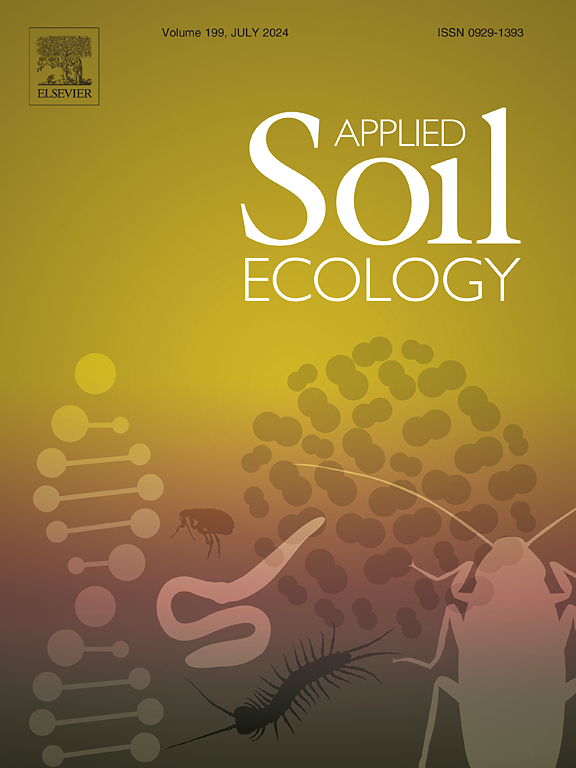The effect of sustainable management practices on the bacterial community in different European croplands
IF 5
2区 农林科学
Q1 SOIL SCIENCE
引用次数: 0
Abstract
Currently, monitoring Europe's soils is crucial since over 60 % of these soils are experiencing different types of degradation, which can potentially affect food production. Recently, a shift toward sustainable soil management has occurred. This shift away from conventional management is postulated to increase soil microbial diversity. However, it is unclear whether sustainable management can shift bacterial community across Europe. The Diverfarming project uses case studies to explore how diversified cropping systems with low-input practices can increase soil fertility, sequester carbon, and increase microbial diversity under differing climate conditions. To explore this, we employed metabarcoding sequencing to amplify the 16S rRNA region and soil chemical properties to assess the effects of organic amendment, rotation/intercropping and diversification with reduced tillage compared to conventional systems in different case studies. We observed that richness and Shannon index were mainly affected by climate and soil chemical properties but not by diversification. However, diversification changed the microbial community and enhanced potential microbial functionality, especially diversification of organic amendments, which also increase total organic carbon and nitrogen. We identified specific bacterial taxa associated with diversification, such as Rubrobacter, MND1, Pontibacter and Sphingomonas, highlighting the potential benefits of some species of these genera in diversification management ecosystems.

可持续管理措施对不同欧洲农田细菌群落的影响
目前,监测欧洲的土壤至关重要,因为60%以上的土壤正在经历不同类型的退化,这可能会影响粮食生产。最近,出现了向可持续土壤管理的转变。这种从传统管理方式的转变被认为可以增加土壤微生物的多样性。然而,目前尚不清楚可持续管理是否可以改变整个欧洲的细菌群落。该项目通过案例研究,探索低投入的多样化种植系统如何在不同气候条件下提高土壤肥力、固碳和增加微生物多样性。为了探究这一点,我们在不同的案例研究中采用元条形码测序技术扩增16S rRNA区域和土壤化学性质,以评估有机改良、轮作/间作和减少耕作方式对传统耕作方式的影响。丰度和Shannon指数主要受气候和土壤化学性质的影响,而不受多样性的影响。然而,多样化改变了微生物群落,增强了潜在的微生物功能,特别是有机修正的多样化,也增加了总有机碳和总有机氮。我们确定了与多样化相关的特定细菌分类群,如Rubrobacter、MND1、Pontibacter和鞘单胞菌,强调了这些属的某些物种在多样化管理生态系统中的潜在益处。
本文章由计算机程序翻译,如有差异,请以英文原文为准。
求助全文
约1分钟内获得全文
求助全文
来源期刊

Applied Soil Ecology
农林科学-土壤科学
CiteScore
9.70
自引率
4.20%
发文量
363
审稿时长
5.3 months
期刊介绍:
Applied Soil Ecology addresses the role of soil organisms and their interactions in relation to: sustainability and productivity, nutrient cycling and other soil processes, the maintenance of soil functions, the impact of human activities on soil ecosystems and bio(techno)logical control of soil-inhabiting pests, diseases and weeds.
 求助内容:
求助内容: 应助结果提醒方式:
应助结果提醒方式:


